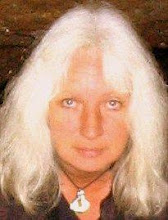
"The Maori Jesus came on shore
And picked out his twelve disciples.
One cleaned toilets in the railway station;
His hands were scrubbed red to get the shit out of the pores.
One was a call-girl who turned it up for nothing.
One was a housewife who had forgotten the Pill
And stuck her TV set in the rubbish can.
One was a little office clerk
Who'd tried to set fire to the Government Buldings.
Yes, and there were several others;
One was a sad old quean;
One was an alcoholic priest
Going slowly mad in a respectable parish."
From James Keir Baxter's poem
The Maori Jesus (Dunedin Poems, 1966 -68)
This picture of Jesus wearing a Maori Cloak is from a church window in Rotorua. Intriguingly he even looks as though he is walking on the water of the lake outside.
To me this is not a religious poem, this is an entirely political poem. I realised this as I was typing the poem, (click here for the full version) on New Zealand Poetry Day. Typing means you take in every word, it slows down your thoughts, sometimes you might find meanings you never noticed before.
And I realised that -
Baxter's Maori Jesus is placed firmly into the working class. He wears workingmen's clothing (blue dungarees/overalls), he eats the traditional kai and colonial bread (mussels and paraoa) of working class Maori. And tellingly he chooses his disciples from the lowest rung of the Maori working/non-working? (it's all about perspective) classes - the railway toilet cleaner, the call girl (Mary Magdalene equivalent perhaps?), the mad housewife, the office clerk (resonant of the British Guy Fawkes even?), the alcoholic priest, the sad old quean. All these people are the disenfranchised, the losers in Pakeha society eyes.
The Maori Jesus comes from a land occupied by another race - the English. They brought their religion as a tool of oppression, they brought their laws which remade most Maori into landless peasantry of Aotearoa/ New Zealand. The story is repeated throughout the colonised/occupied world.
If our James K Baxter had been white Australian, his Jesus could have been an Aboriginal Jesus;
If Baxter was American then Baxter could have written his poem about a Native American Jesus -
By way of diversion Jesus could have even been African American;
in the historical British-occupied India, Baxter could have created his Jesus as an Indian Jesus,
Moreover, if Baxter identified as English, his Jesus could have been a Saxon in the Roman-occupied English Isles -
In similar time-frame Baxter's Jesus might have been Jewish in Roman-occupied Jerusalem.
Oh he was ...
These days he could even be written (in complete reversal) as a Palestinian in Israeli-occupied Palestine.
It's all the same story.
But on the 29th of August in the year 2000 when Tariana Turia (then a NZ Labour MP) gave an
address to the New Zealand Psychological Society Conference which took place at the Waikato University, Hamilton, in which she likened the colonisation/occupation/home invasion of Aotearoa/New Zealand (the Land of The Long White Cloud) to a Maori Holocaust Pakeha (white) New Zealanders were outraged! No one wants to be likened to a Nazi after all - many people even insisted Tariana was showing symptoms of grandiosity to liken the effect of colonisation on Maori to the slaughter of the innocent Jewish people by the evil Nazis.
About the grandiosity, we hadn't met Clayton Weatherston back then, the man who has brought home to all Kiwis the true meaning of grandiosity.
The poem goes on to tell us that:
"The first day he was arrested
For having no lawful means of support.
The second day he was beaten up by the cops
For telling a dee his house was not in order.
The third day he was charged with being a Maori
And given a month in Mt Crawford.
The fourth day he was sent to Porirua
For telling a screw the sun would stop rising.
The fifth day lasted seven years
While he worked in the Asylum laundry
Never out of the steam.
The sixth day he told the head doctor,
'I am the Light in the Void;
I am who I am.'
The seventh day he was lobotomised;
The brain of God was cut in half."
Tariana said:
"I seek not personal attention. I just want us to consider our history as a country and consider how this history has affected the indigenous people, how this history has impacted on Maori whanau, hapu and iwi.
I really do believe that mature, intelligent New Zealanders of all races are capable of the analysis of the trauma of one group of people suffering from the behaviour of another.
I can see the connections between 'home invasions' which concern many of us, to the invasion of the 'home lands' of indigenous people by a people from another land.
What I have difficulty in reconciling is how 'home invasions' emits such outpourings of concern for the victims and an intense despising of the invaders while the invasion of the 'home lands' of Maori does not engender the same level of emotion and concern for the Maori victims.
I wonder why that is?" (Turia, 2000)



No comments:
Post a Comment